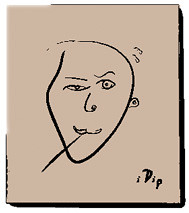By THOMAS L. FRIEDMAN
I've been thinking of running for high office on a one-issue platform: I promise, if elected, that within four years America will have cellphone service as good as Ghana's. If re-elected, I promise that in eight years America will have cellphone service as good as Japan's, provided Japan agrees not to forge ahead on wireless technology. My campaign bumper sticker: "Can You Hear Me Now?"
I began thinking about this after watching the Japanese use cellphones and laptops to get on the Internet from speeding bullet trains and subways deep underground. But the last straw was when I couldn't get cellphone service while visiting I.B.M.'s headquarters in Armonk, N.Y.
But don't worry - Congress is on the case. It dropped everything last week to pass a bill to protect gun makers from shooting victims' lawsuits. The fact that the U.S. has fallen to 16th in the world in broadband connectivity aroused no interest. Look, I don't even like cellphones, but this is not about gadgets. The world is moving to an Internet-based platform for commerce, education, innovation and entertainment. Wealth and productivity will go to those countries or companies that get more of their innovators, educators, students, workers and suppliers connected to this platform via computers, phones and P.D.A.'s.
A new generation of politicians is waking up to this issue. For instance, Andrew Rasiej is running in New York City's Democratic primary for public advocate on a platform calling for wireless (Wi-Fi) and cellphone Internet access from every home, business and school in the city. If, God forbid, a London-like attack happens in a New York subway, don't trying calling 911. Your phone won't work down there. No wireless infrastructure. This ain't Tokyo, pal.
At the City Hall subway stop this morning, Mr. Rasiej plans to show how one makes a 911 call from the subway. He will have one aide with a tin can in the subway send a message to another aide holding a tin can connected by a string. Then the message will be passed by tin can and string up to Mr. Rasiej on the street, who will call 911 with his cellphone.
"That is how you say something if you see something today in a New York subway - tin cans connected to someone with a cellphone on the street," said Mr. Rasiej, a 47-year-old entrepreneur who founded an educational-technology nonprofit.
Mr. Rasiej wants to see New York follow Philadelphia, which decided it wouldn't wait for private companies to provide connectivity to all. Instead, Philly made it a city-led project - like sewers and electricity. The whole city will be a "hot zone," where any resident anywhere with a computer, cellphone or P.D.A. will have cheap high-speed Wi-Fi access to the Internet.
Mr. Rasiej argues that we can't trust the telecom companies to make sure that everyone is connected because new technologies, like free Internet telephony, threaten their business models. "We can't trust the traditional politicians to be the engines of change for how people connect to their government and each other," he said. By the way, he added, "If New York City goes wireless, the whole country goes wireless."
Mr. Rasiej is also promoting civic photo-blogging - having people use their cellphones to take pictures of potholes or crime, and then, using Google maps, e-mailing the pictures and precise locations to City Hall.
Message: In U.S. politics, the party that most quickly absorbs the latest technology often dominates. F.D.R. dominated radio and the fireside chat; J.F.K., televised debates; Republicans, direct mail and then talk radio, and now Karl Rove's networked voter databases.
The technological model coming next - which Howard Dean accidentally uncovered but never fully developed - will revolve around the power of networks and blogging. The public official or candidate will no longer just be the one who talks to the many or tries to listen to the many. Rather, he or she will be a hub of connectivity for the many to work with the many - creating networks of public advocates to identify and solve problems and get behind politicians who get it.
"One elected official by himself can't solve the problems of eight million people," Mr. Rasiej argued, "but eight million people networked together can solve one city's problems. They can spot and offer solutions better and faster than any bureaucrat. ... The party that stakes out this new frontier will be the majority party in the 21st century. And the Democrats better understand something - their base right now is the most disconnected from the network."
Can you hear me now?

2 comments:
friedman has some great idea's
and thats one of them , we should improve our own here in kuwait
i agree with foraq8, this guy has important vision that needs to be forwarded through us...
why the hell nobody wana read long posts or even serious ones....?!?!
dude try pulling some political blogers to discuss the post and benifit from it...
good choices and best of wishes...
Post a Comment